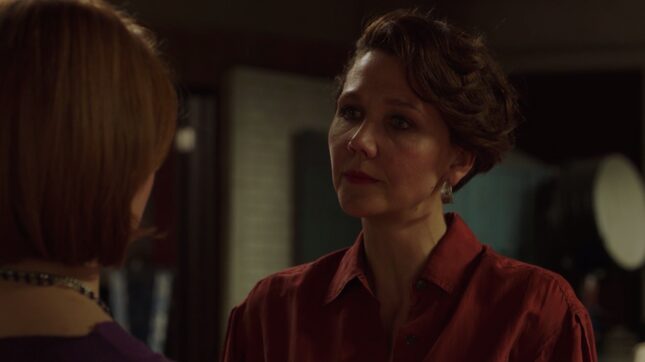

For three seasons, Maggie Gyllenhaal has been one of the primary reasons to keep watching The Deuce, despite compelling reasons (James Franco in two roles) to stop watching The Deuce. As Eileen, a Queens girl from a good Catholic family who’s exiled from her home for unknown reasons and winds up doing sex work in 1971 Times Square, Gyllenhaal has brought a crackling energy to her role, particularly as Candy parlays her street work into a successful career as an artistic, proto-feminist porn director. She should have won 15 or 20 awards for a single Season 2 scene alone, during which she tries to convince a producer to fund the film she knows will be a big hit; he tells her he’ll write her a check for $10,000 on the spot if she gives him a blow job. The steely look she gives him, the way she visibly swallows her pride and acquiesces, communicates as much in a single look about the way power and money are wielded over women as any dialogue in the entire show. Gyllenhaal was nominated and lost the 2017 Golden Globe for Best Actress to Elisabeth Moss, but deserved it just as much.
Spoilers ahead.
The Deuce, in its final season, has been making clear—to the point of spelling it out—that its point about money and power and women’s bodies have always been the show’s purpose; that women’s bodies were at the heart of making Times Square tick during lawless and ruthless 1970s New York, and that regulating them were what began its “cleanup” in the 1980s. In Monday night’s episode, “This Trust Thing,” the tangible effects of all this begin to show through the cracks. Eileen, her “Candy” street moniker now mostly shed, is embarking on a full feminist awakening after, in a prior episode, being completely roasted by Andrea Dworkin (played incredibly by Marcia DeBonis) at a Women Against Porn meeting. (It’s still slightly unclear, though, after two seasons of defending its characters’ choices and showing Candy gaining a modicum of power through pornography, if The Deuce has a stance either way; I rather hope it doesn’t.)
-

-

-

-

-

-

-

-

-

-

-

-

-

-

-

-

-

-

-

-

-

-

-

-

-

-

-

-

-

-

-

-

-

-

-

-

-

-

-

-








































